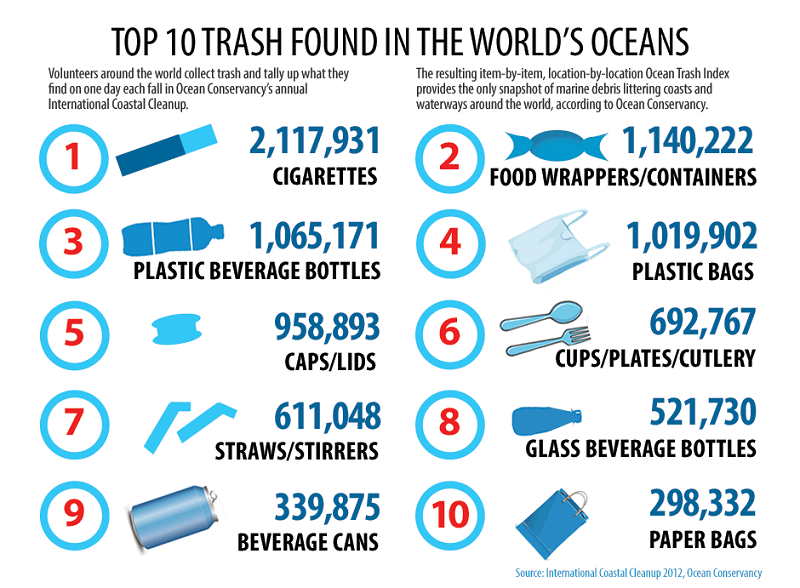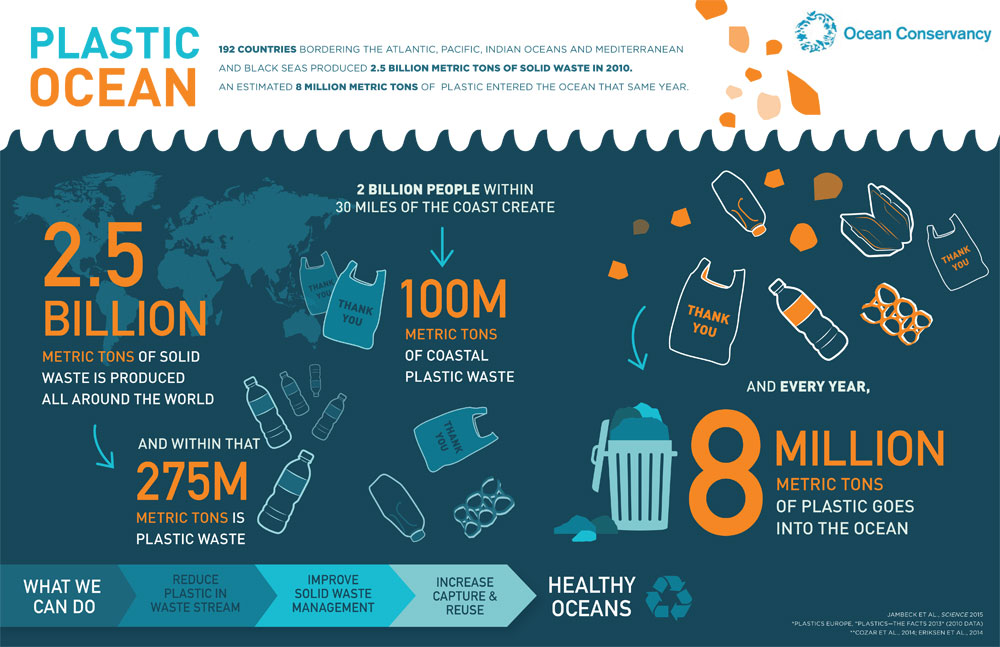How you can help keep our marine life from eating and swimming in garbage
Plastic is all around us. It’s in our homes, our offices, our cars, our playgrounds. We use it to package food, bottle products, bag produce, make dinnerware and utensils, make most of the things.
Plastics have undoubtedly helped us to manufacture, package and ship goods more easily, for less money.
But, plastics pose a significant threat to our planet as well.
Around 700 marine species are faced with extinction due to the threat plastic poses to them from entanglement, pollution, and ingestion. An international study from the University of Queensland discovered that 50 percent of sea turtles have plastic in their stomachs.
Additionally, a recent study posited that by 2050, 99 percent of all seabird species will have ingested plastic waste. According to a study by the World Economic Forum, there will be one tonne of plastic for every three tonnes of fish by 2025, and if things go on business as usual, there will be more plastic in the ocean than fish by 2050.

Keeping plastic out of the ocean is the main mission of this year’s World Oceans Day and you can help reduce our impact on the oceans by refusing plastic bags and water bottles, and choosing cosmetics that are free of microbeads.
1. Use reusable produce bags
About 1 million plastic bags are used every minute, and a single plastic bag can take 1,000 years to degrade. If you’re already bringing reusable bags to the grocery store, you’re on the right track, but if you’re still using plastic produce bags, it’s time to make a change. Purchase some reusable produce bags and help keep even more plastic out of the landfill. However, avoid those bags made from nylon or polyester because they’re also made from plastic. Opt for cotton ones instead.
2. Stop using bottled water
Each year, close to 20 billion plastic bottles are tossed in the trash. Carry a reusable bottle in your bag, and you’ll never be caught having a Nestle or Evian bottle again. If you’re nervous about the quality of your local tap water, look for a model with a built-in filter.
3. Bring your own shopping bag
The usefulness of these thin and easily ripped bags is extremely limited, yet according to one estimate, somewhere between five billion and one trillion plastic bags are used each year around the world. Although free to shoppers, these bags have a high environmental cost and are one of the most ubiquitous forms of garbage. Bringing your own plastic bag is common but good environmental advice, such good advice that some governments implemented policies to encourage more people to do it.
4. Use reusable bottles and cups
Bottled water produces 1.5 million tons of plastic waste per year, and these bottles require 47 millions gallons of oil to produce, according to Food & Water Watch. By simply refilling a reusable bottle, you’ll prevent some of these plastic bottles from ending up in landfills and oceans — but don’t stop there. Bring a reusable cup to coffee shops and ask the barista to fill it up, and keep a mug at your desk instead of using plastic, paper or Styrofoam cups.
5. Give up gum
Gum was originally made from tree sap called chicle, a natural rubber, but when scientists created synthetic rubber, polyethylene and polyvinyl acetate began to replace the natural rubber in most gum. Not only are you chewing on plastic, but you may also be chewing on toxic plastic — polyvinyl acetate is manufactured using vinyl acetate, a chemical shown to cause tumors in lab rats. While it is possible to recycle your gum, it may be best to skip it — and its plastic packaging — altogether.
6. Buy in bulk
Single-serving yogurts, travel-size toiletries, tiny packages of nuts—consider the product-to-packaging ratio of items you tend to buy often and select the bigger container instead of buying several smaller ones over time.
7. Watch out for toiletries that contain micro-beads
These small plastic beads are found in some facial products, soaps, shower gels and toothpastes. They are very small so can’t be effectively filtered from waste before it enters rivers, lakes or oceans.
8. Reduce, reuse and recycle plastic
Reduce your use of plastics, reuse plastic products whenever possible, recycle all of the rubbish you can!
9. Re-think your food storage
Plastic baggies, plastic wrap, and plastic storage containers are worth re-evaluating. Instead of sandwich baggies, why not pack a tiffin for lunch? Instead of throwing away plastic zipper bags or wrapping things in Saran wrap, why not use jars or glass containers in the fridge? When it comes to carryout, these types of containers be used instead of disposable ones—although it can definitely take a bit of courage and some explaining to help your local restaurants to understand.
10. Volunteer at a beach cleanup
One of the ways you can help marine and beach animals escape the dangers of plastics is by litter-picking. Make beach cleanups a family event! Spread the word. Talk to your family and friends about why it is important to rise above plastics.


